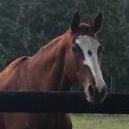-
Welcome to the eG Forums, a service of the eGullet Society for Culinary Arts & Letters. The Society is a 501(c)3 not-for-profit organization dedicated to the advancement of the culinary arts. These advertising-free forums are provided free of charge through donations from Society members. Anyone may read the forums, but to post you must create a free account.
The etiquette of being served first
-
Similar Content
-
- 48 replies
- 6,047 views
-
- 36 replies
- 3,053 views
-
- 133 replies
- 37,040 views
-
- 10 replies
- 602 views
-
- 8 replies
- 697 views
-
-
Recently Browsing 0 members
- No registered users viewing this page.






Recommended Posts